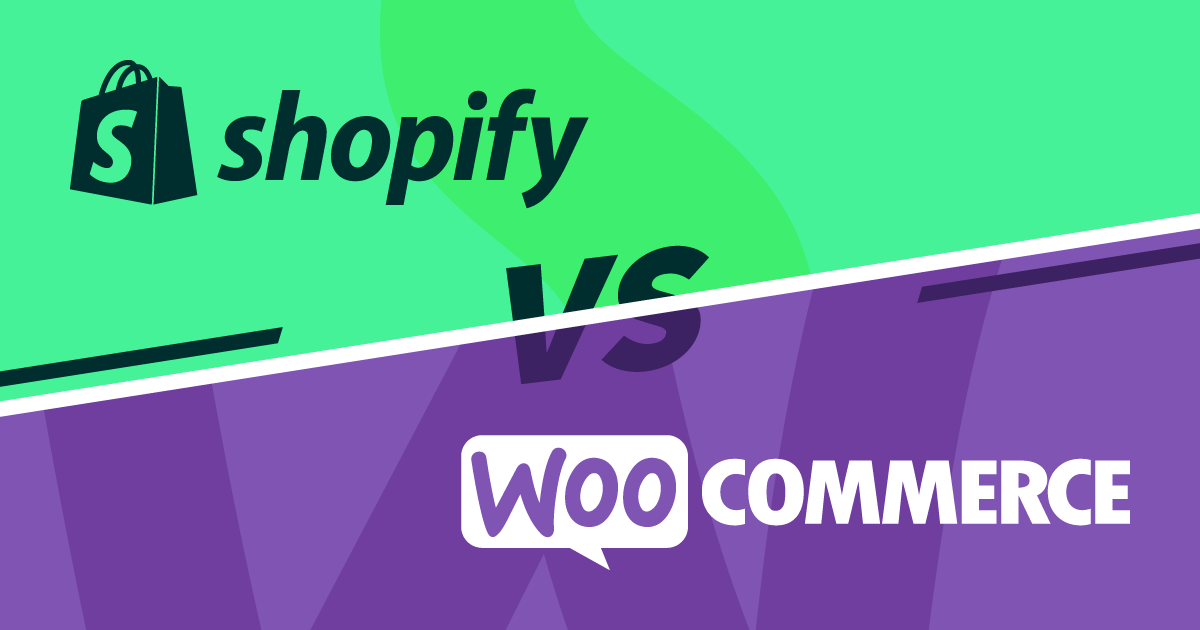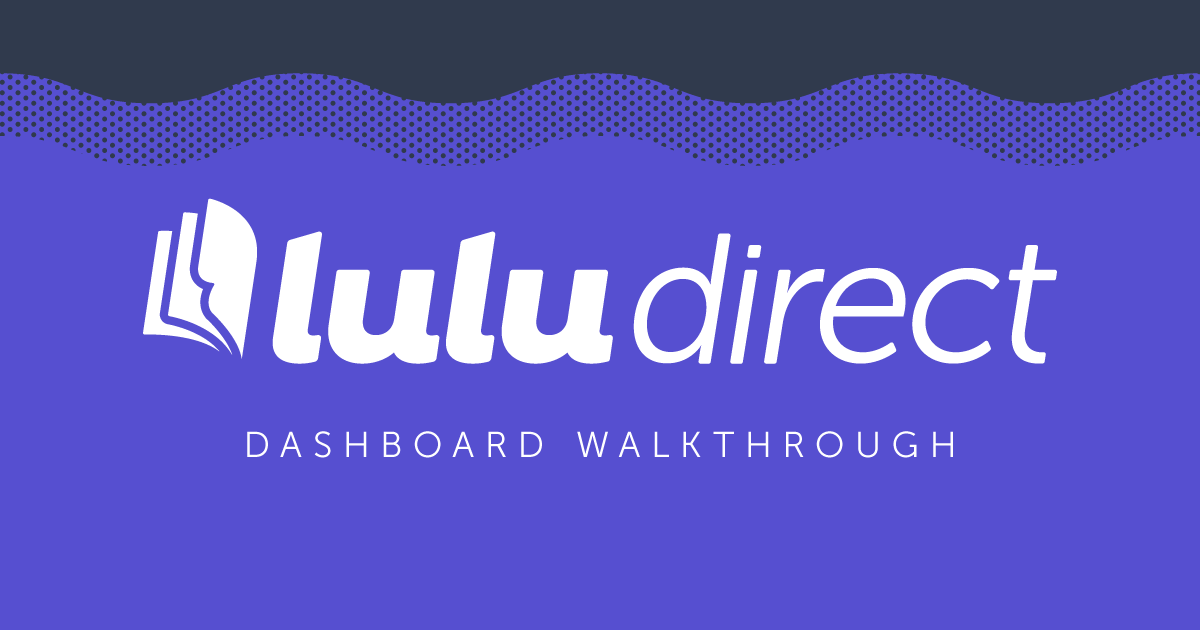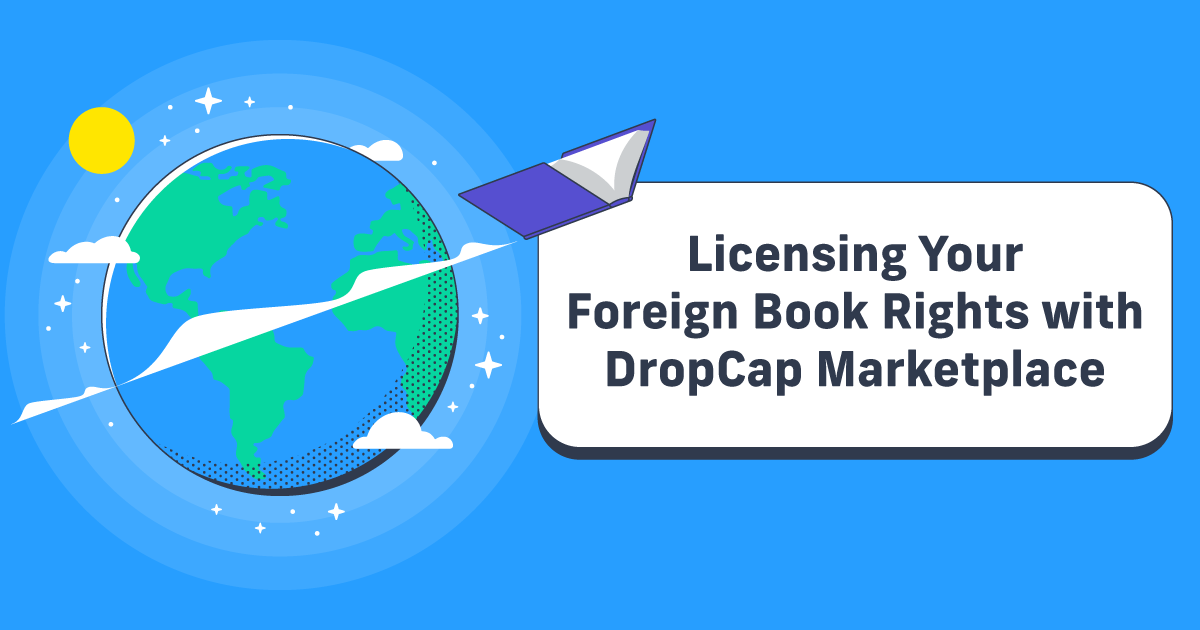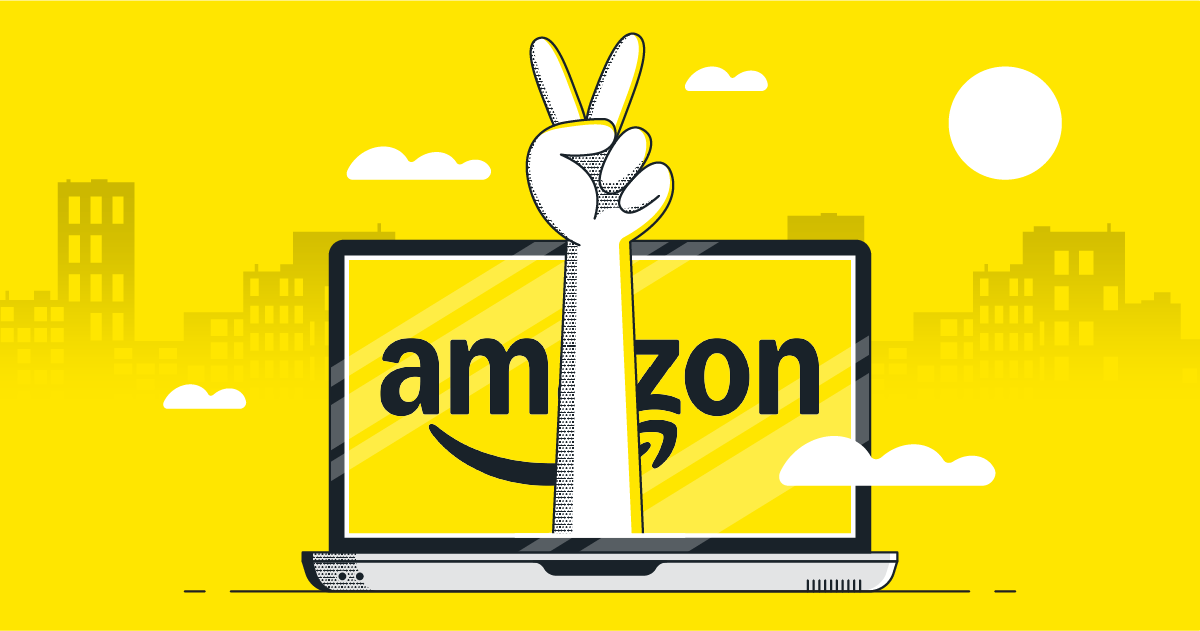Shopify vs. WooCommerce: Which Is Best for You?
You know entrepreneurs and authors need to be selling their books through their own websites. You already know that with Lulu Direct you can earn more per sale, collect customer data, automate print and fulfillment, and take advantage of white-label shipping. But, what you may not know is which ecommerce platform is best for your business. So, let’s find out!
Comparing WooCommerce and Shopify for Creators
Lulu Direct integrates with Shopify and WooCommerce. Both offer robust ecommerce solutions for authors and businesses, but there are several differences between the two that are worth noting before making a decision.
Best for Ease of Use
For the average user, Shopify is much easier to get started with. That’s because Shopify is a hosted platform, meaning that it takes care of many of the technical elements of operating an ecommerce store, including domain name and hosting your site, and any security needs.
With WooCommerce, you’ll need to do a little more work to set things up. WooCommerce is made specifically for WordPress websites, so you must create your WordPress site before working with WooCommerce. You will also have to source your own web hosting and security. It may sound like a lot if you’re brand new to the ecommerce world, but it’s definitely doable with a bit of time, investment, and research.
Using Lulu Direct for Shopify
When it comes to actually building your ecommerce store, take time to decide what’s important to you and your brand. If you want a user-friendly store, but want to get the ball rolling as quickly as possible, Shopify will be your best bet. However, if you’re willing to invest more time to have greater control, working with WordPress to create a custom site and WooCommerce to build your product pages and checkout process is the better choice.
If you are starting from scratch and have limited technical skills, Shopify will allow you to get your store up and running more easily than WooCommerce. Shopify is a platform that is hyperfocused on ecommerce selling, whereas WordPress must be connected to WooCommerce to allow for ecommerce transactions. In terms of the look and feel of your store, you can choose a premade theme and populate it with your content.
If you already have a WordPress site set up, WooCommerce is a better option. This is also an excellent choice if you want to create a custom site with complete creative control.
Design Theme Options
Both WordPress and Shopify offer themes and templates to build your store. Shopify’s theme store has over 70 free and paid themes to choose from, all stylish and designed to help you sell.
WordPress offers a clean and customizable entry theme, but your store’s design ultimately depends on how much time and effort you’re willing to put into it. When you install WooCommerce it will recommend some themes to use and there are also WordPress themes designed to work with WooCommerce.
If a theme isn’t designed to work specifically with WooCommerce, it doesn’t mean it won’t work, but it may look awkward on some of the pages. You also have the option of choosing a theme from third-party Theme Forest, which has over 1,000 themes to choose from.
The number of themes to choose from for WordPress is vast, while Shopify’s list is curated and chosen for what will work best for your store and may be more approachable if you’re new to the website design game.
Video Tutorials: Using Lulu Direct for WooCommerce
Best Sales Features
Neither WooCommerce nor Shopify will let you down when it comes to selling your products online, but the standard features they offer are where they differ.
Shopify includes an abandoned cart recovery feature, which sends customers an email to remind them to complete their orders. Customers can come back to their cart to complete their purchase without filling in their details again. This is a great option for any business owner that, unfortunately, doesn’t come standard with WooCommerce.
Shopify wins on cart retention, multichannel selling, and shipping, but WooCommerce also offers some great standard features, including:
- Built-in blogging
- Unrestricted customization
- Embed products and checkout on store pages
- One-click refunds.
Shopify also has a built-in blog feature, but be aware that it is much less advanced than WooCommerce offers through WordPress.
Both platforms enable multichannel selling on Amazon, eBay, Instagram, and Facebook.
Best Shipping Options
Shopify and WooCommerce both allow you to set your own shipping rates and sell internationally, but Shopify has the advantage of partnering with USPS, DHL Express, UPS, and Canada Post, meaning you won’t have to source your own courier which can save a lot of time and hassle if you’re selling other products through your Shopify store.
For your Lulu books, orders will be shipped using Lulu’s shipping options.
Plugins and Integrations
A great way to add extra functionality to both platforms is by installing apps (for Shopify) or plugins (for WordPress). WordPress offers over 50,000 plugins to choose from, allowing you to build a truly custom site. Shopify has over 1,200 free and paid apps, which is obviously a smaller selection than WordPress, but that is more than enough to achieve the look, feel, and functionality you want.
Cost to Use Shopify and WooCommerce for WordPress
Let’s talk money! Shopify has plans ranging from $29-$299 per month, depending on your needs. Each of these plans includes security and web hosting and comes with a Shopify branded subdomain. You can use your own domain name for an additional price.
The great thing about this is that Shopify packs a ton of features into their plans, so once you choose one, you can get your store started right away. This price doesn’t include third-party apps to scale your store, so keep in mind the costs can start adding up as your business grows.
Shopify Pricing
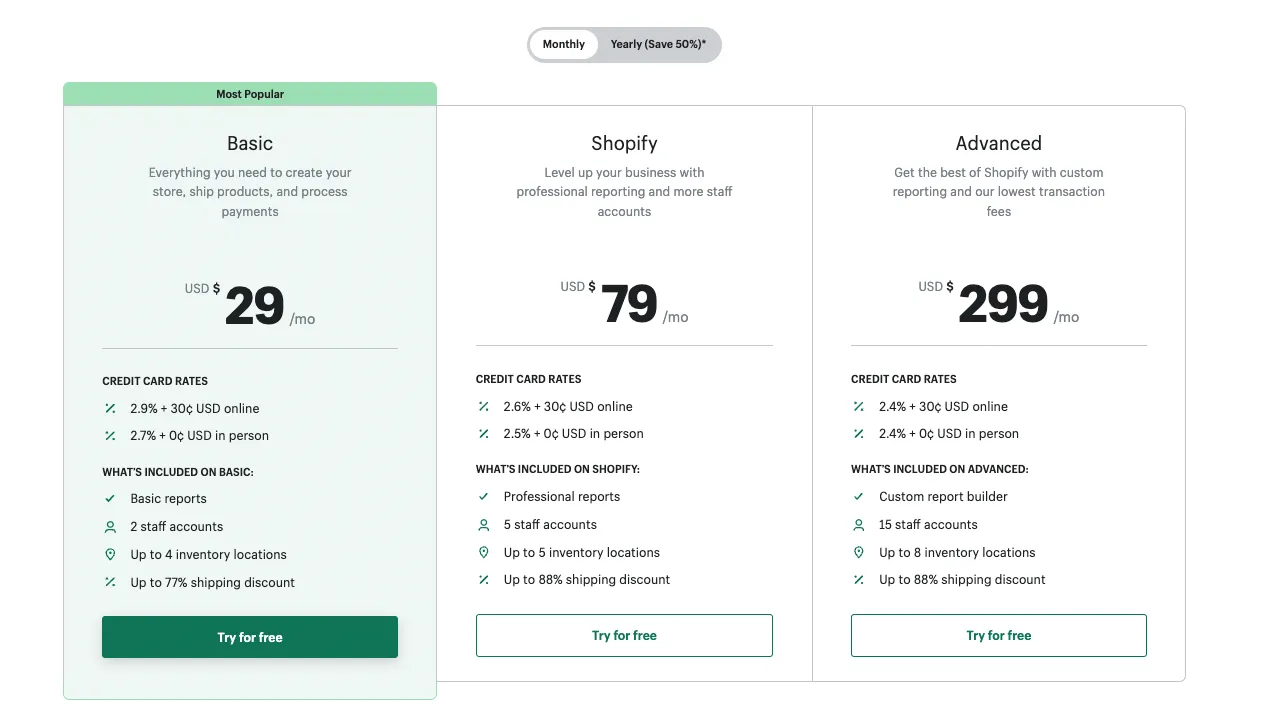
WooCommerce Pricing
WooCommerce is a free plugin for WordPress, but you’ll need to purchase a domain name, SSL certificate, and a host to start your store. These range in prices that can cost a bit more than your basic Shopify plan (see below). The advantage here is that you can pick and choose which plugins you use and often find free alternatives. This way, you only pay for exactly what you need as your business grows.
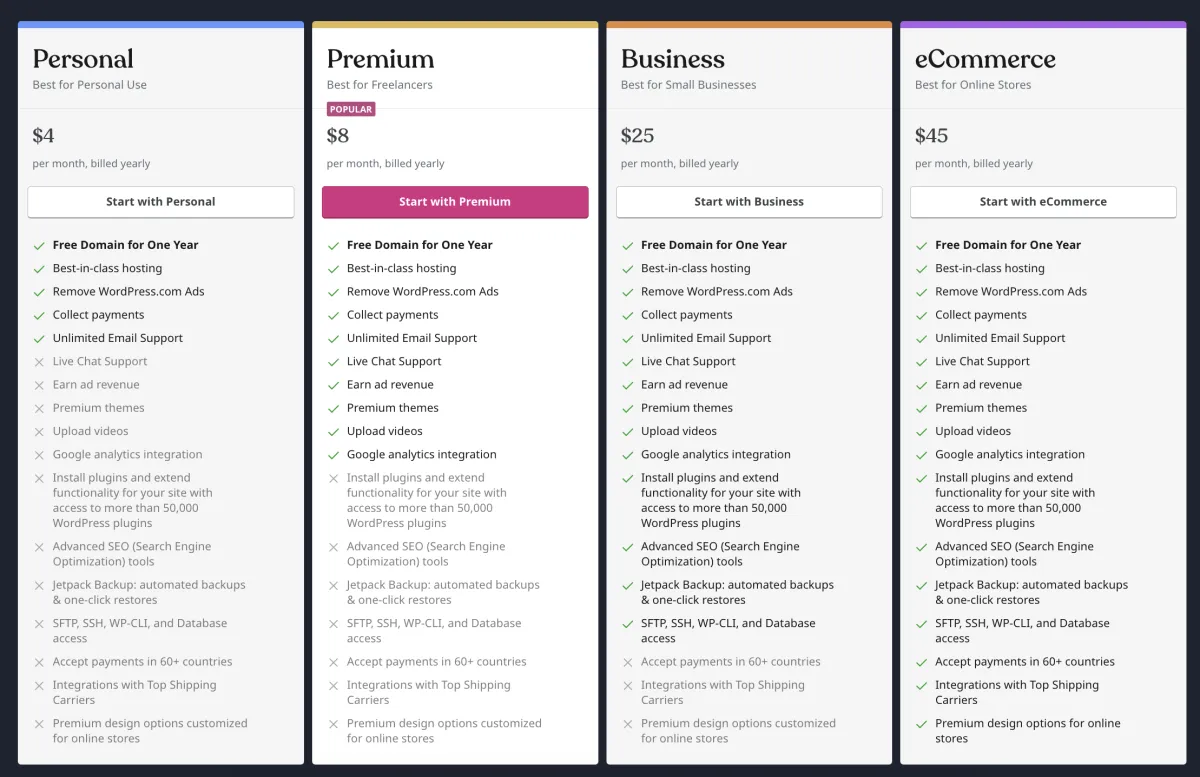
You can also choose to go completely DIY with WordPress and purchase your own hosting and security options. If you choose to go this route, using WordPress is free, but you will have to pay for the hosting and security options you choose.
Best Customer Service
Shopify is a fully hosted platform, which means they control the software and can help you directly with any questions or issues that may arise. They provide 24/7 customer support via live chat, phone, email, and Twitter, as well as an extensive knowledge base with video tutorials and forums.
WooCommerce also has 24/7 chat support (if you purchase hosting directly from WordPress), tutorials, and guides, as well as a network of certified experts ready to help you. The thing to keep in mind is that if you use WordPress.org to create your site, the host isn’t going to do anything other than assure uptime. If you use WordPress.com, you get access to the same kind of support Shopify will offer.
Which Platform is Best for Your Business?
When you’re ready to venture into the realm of ecommerce, Shopify and WooCommerce are both powerful tools to help you get started and grow your business.
Tl;DR
- You should use Shopify if:
- You want 24/7 support and things like hosting and security taken care of for you
- If you want your website up and running as quickly as possible and have limited technical knowledge
- You want clean and stylish templates that are easy to use
- You should use WooCommerce if:
- You want to set up a passion project where personalization is key
- You want to build a large online store with scalability
- You are tech-savvy and want control over your site’s design and functionality
But wait – there’s more! What if neither of these sounds appealing to you? What if you already have a website hosted by a different platform and you just want the ability to sell books through your website?
More Options: The Shopify Starter Plan and Lulu Print API
Shopify Starter allows you to add a Buy Button for your book, using Shopify’s cart, to any site or blog. The best part is, that it’s only $5 a month, making it a very affordable option if you’re just starting your business.
Shopify Starter is also great if you’ve already set up your site on Squarespace or Wix and don’t want to change anything but need to add a fully functional ecommerce store. Plus, with Shopify Starter you can also start selling through your social channels and messaging apps.
If you’re tech-savvy and looking for more customization opportunities, Lulu’s Print API is an excellent option for you! Our Print API is perfect for anyone with an ecommerce business and would like to add print books to their product roster. The Print API offers the same benefits as Lulu Direct, and best of all, there are no fees, and you only pay to print and ship orders.
Video Tutorials: Ecommerce 101
Selling your books directly can take many forms, but regardless of which solution you choose, the rewards are vast and worth the investment.
Happy selling!

